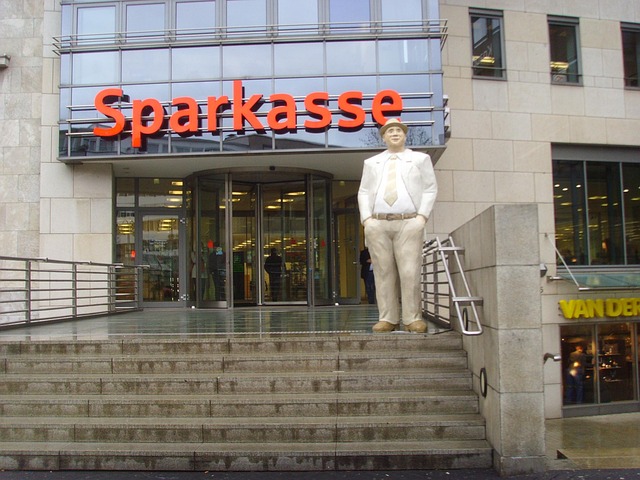A Merchant Cash Advance (MCA) is a unique financing option for small businesses, offering quick access to capital based on future sales volume rather than collateral or credit history. MCAs work by third-party lenders advancing funds in exchange for a percentage of future credit card sales, with flexible repayment structured around the business's sales performance. This eliminates stringent requirements common in traditional bank loans, providing fast liquidity for expenses, growth opportunities, or cash flow management during slow periods. However, MCAs carry risks such as high interest rates and fees, variable terms, and potential fluctuations in sales or cash flow, necessitating a thorough assessment of one's business financial health before pursuing an MCA.
“Unraveling the complexities of funding for small businesses, this article delves into the world of Merchant Cash Advances (MCAs) – a unique financing option. MCAs provide quick access to capital, allowing business owners to secure funds based on future credit card sales. This introduction sets the stage for understanding the concept, its operation, and the significant benefits it offers. We’ll explore considerations and risks, while also presenting alternative financing options, empowering entrepreneurs to make informed decisions.”
- What is a Merchant Cash Advance?
- How Do Merchant Cash Advances Work?
- Benefits for Small Businesses
- Considerations and Risks
- Alternative Financing Options
What is a Merchant Cash Advance?

A merchant cash advance (MCA) is a unique financing option designed specifically for small businesses. Unlike traditional loans that rely on collateral or credit history, MCAs are based on a business’s sales volume and future revenue potential. This alternative funding method offers quick access to capital, making it an attractive solution for entrepreneurs seeking immediate financial support.
In essence, a merchant cash advance involves a third-party lender providing a certain amount of capital to a business in exchange for a percentage of future credit card sales. It serves as a form of short-term financing, with the repayment process structured around the business’s sales performance. This flexible approach allows small businesses to secure funding without the stringent requirements often associated with bank loans.
How Do Merchant Cash Advances Work?

A merchant cash advance (MCA) is an alternative financing option for small businesses, offering a flexible and quick way to access capital. Unlike traditional loans, MCAs are not based on your credit history or personal guarantees; instead, they use your business’s future sales as collateral. This process involves several steps: the provider assesses your business’s sales volume and then advances a certain percentage of those expected sales. This advanced amount, plus a fee (typically a fixed percentage), is repaid automatically through a small portion of your daily credit card sales.
The beauty of MCAs lies in their simplicity and speed. There’s no need for complex applications or extensive documentation. Businesses can receive funding within days, providing them with the liquidity needed to cover expenses, invest in growth opportunities, or manage cash flow during slow periods. This makes merchant cash advances particularly appealing for small businesses seeking a hassle-free, quick-turnaround financing solution.
Benefits for Small Businesses

Merchant cash advances (MCAs) offer small businesses a flexible and accessible funding solution, providing them with several significant advantages. Unlike traditional loans, MCAs do not require collateral or a complex application process. This means smaller enterprises can secure funding more swiftly, allowing them to seize market opportunities or manage unexpected cash flow gaps without the usual delays.
Additionally, the repayment structure of MCAs aligns with a business’s natural sales cycles. Instead of fixed monthly payments, the advance is repaid through a percentage-based fee taken directly from the business’s credit or debit card sales. This dynamic approach ensures that repayment remains proportional to the company’s revenue, making it easier for small businesses to manage their finances and budget effectively.
Considerations and Risks

When considering a merchant cash advance (MCA) for your small business, several important considerations and risks come into play. Firstly, MCAs are not traditional loans; they involve selling a portion of your future credit card sales in exchange for upfront funding. This means you’re essentially securing the loan with your business’s revenue stream, which can be risky if sales fluctuate or decline.
Additionally, MCAs often carry high interest rates and fees compared to conventional loans, making them costlier over time. The terms and conditions of these advances can vary greatly between lenders, so it’s crucial to thoroughly research and compare offers. Misunderstanding the repayment terms, unexpected changes in business cash flow, or unforeseen circumstances could lead to significant financial strain on your business. Therefore, a thorough assessment of your business’s financial health and future projections is essential before pursuing an MCA.
Alternative Financing Options

Many small business owners often turn to traditional banking options for funding, but there’s a growing alternative in the form of merchant cash advances (MCAs). Unlike bank loans that require extensive paperwork and credit checks, MCAs provide quick access to capital, making them an attractive solution for businesses seeking immediate financial support. This type of financing is especially beneficial for those with limited or poor credit history, as it operates on a different principle than conventional lending.
Instead of a loan, a merchant cash advance is essentially a sale of future credit card sales. Lenders purchase a portion of these upcoming revenues at a discount, offering businesses an immediate injection of cash. This method is particularly appealing for retail and service-based businesses with consistent credit card transactions. While MCAs may come with higher interest rates compared to traditional loans, they offer flexibility and speed, allowing business owners to access funds quickly to cover expenses, expand operations, or capitalize on market opportunities.














